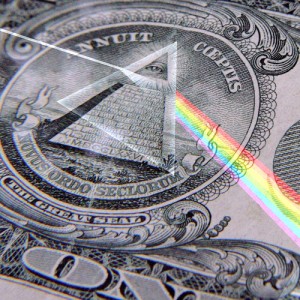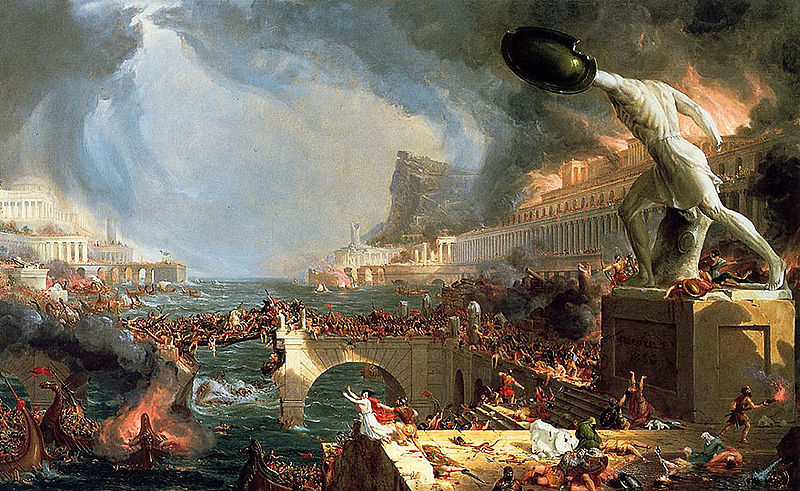
Image by TW Collins
Systems of governance, and both capitalism and democracy are such systems, can run cycles of success, failure, and renewal for a long time. Consider Imperial Confucian China, with dynasties failing, sometimes with interregnums, then new dynasties arising. Dynasties would tend to be vigorous to start, corrupt and sclerotic at the end.
Or the Dark Ages and Medieval Europe, with forms of feudalism and monarchy surviving crises over many centuries.
Let’s consider the dynamic in a bit of detail.
A system survives when it gives power to those who support it AND are capable of continuing it.
This seems obvious, but it’s a little more tricky than it seems.
(Speaking of money, I am fundraising to determine how much I’ll write this year. If you value my writing, and want more of it, please consider donating.)
Take capitalism: Capitalism runs through greed. It gives power to those who do whatever it takes to make the most money The more money you have, the more power you have. Money is the ability to decide what other people do, not just the ones you hire directly, but through purchasing power. Apple decides what Foxconn does, and heck of a lot of other people it doesn’t hire directly.
Capitalism’s prime directive is: “Do whatever makes the most money.” Whoever does that successfully also receives the most power.
In a capitalist society, people who do not respond to capitalism’s prime direct, do whatever makes the most money, do not get power. Since they have no power, they cannot challenge capitalism.
The catch here is part two of the prime directive, “and are capable of continuing it.”
Capitalism must also run the actual real economy, which consists of people and things: houses, food, sewer systems, airports, and so on.
If capitalism fails to run that system effectively, that has real effects which having more money cannot manage.
You see this in the hyperinflation of Weimar Germany. You see this in the Great Depression. You see this now, in America, where parts of the population are seeing absolute declines in life expectancy.
In Capitalism, there is supposed to be a transmission between the real economy and how much money powerful people have: you should get your vast wealth by giving people what they want, and that should be good for the economy, and if it isn’t, you should go bankrupt.
People who pursue money but cannot actually manage the real economy should lose that money, and therefore their power.
This happened in the Great Depression. The rich took their losses, and lost their power (though not all of them). Those who remained were the smarter or luckier–more capable.
Still, the magnitude of the disaster was such that capitalism was in some danger. As many have observed, FDR rescued capitalism.
What happened in 2008 is that a large portion of capitalists lost all their money (and more than all their money). If the capitalist transmission system had been allowed to work, there would not have been a single solvent major bank or brokerage in the United States.
They had fucked up.
BUT, they had also bought the politicians and regulators, and thus, were bailed out.
The real economy, which is not GDP, then shifted into a lower state of activity.
Businesses used to operate at near 90% of capacity. Now we settle for ~75%. No higher today than March 2011. Living below our means. pic.twitter.com/WXGkAKdbiU
— Stephanie Kelton (@StephanieKelton) September 17, 2017
This process has been going on for a long time now, since 1980 really. The rich have been getting richer and worse at managing the actual economy.
What should have happened in 2008 was that the rich took their losses and power moved to democratically-elected officials, as it did in the 30s. But democratically-elected officials, handed said power on a platter, refused to take it. (Yes, the Fed, but the Fed can be brought to heel any time either Congress of the President chooses to.)
Democracy, thus, also failed.
A system must give power to those who want to continue it. It must also run the actual society well enough to avoid being overthrown.
Democracy failed in 2008, but it has not failed, completely–yet. In Britain, we see the rise of Corbyn, who wants to take back vast swathes of the economy from private business; for instance, things like the train system, where private owners have made train travel cost more but less reliable.
In the US, the Democratic Party is moving towards single payer health care, because the private industry has failed to run health care effectively and efficiently for the majority of the population.
These are healthy movements. Capitalism has failed to do what it is supposed to do: Run the economy properly. They said, in the 70s and 80s, “We’re better than the public. Privatize and de-regulate, and we’ll do a great job.”
Instead, we’ve experienced a progressive decline, which has been leading to catastrophe.
If democracy succeeds in removing from the private sector what it cannot run effectively, and in removing the power from the wealthy whom have proven they cannot manage–as with Corbyn’s maximum salary proposal (though more comprehensive anti-trust actions are needed), then democracy will survive.
If democracy cannot manage what capitalism cannot, then democracy, too, is on the line. It will have failed to run society effectively, and will be seen to have failed.
Either democracy tames capitalism, or democracy and capitalism may both die.
The results of the work I do, like this article, are free, but food isn’t, so if you value my work, please DONATE or SUBSCRIBE.

 I have been writing a long time. For most of that time, people said I was “pessimistic” and
I have been writing a long time. For most of that time, people said I was “pessimistic” and 
